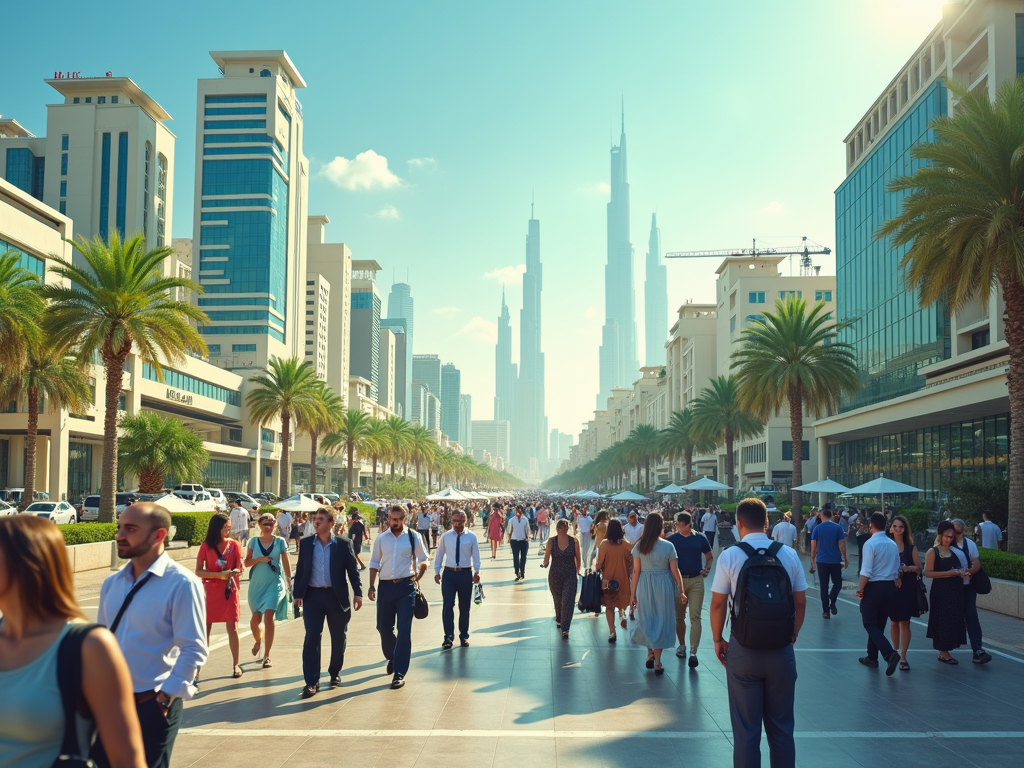Dubai’s free zones have become a major attraction for international investors, providing a business-friendly environment with tax incentives, state-of-the-art infrastructure, and regulatory flexibility. These designated zones offer numerous advantages, including 100% foreign ownership, tax exemptions, and simplified import and export procedures, making them an ideal choice for entrepreneurs looking to establish a presence in the UAE.
One of the most prominent options for setting up a business in a free zone is IFZA. Known for its cost-effective business setup solutions, streamlined processes, and a wide range of licensing options, IFZA provides international investors with an efficient gateway to the UAE market.
This article explores the key strategies that make Dubai’s free zones appealing to global investors and highlights their critical role in driving the emirate’s economic growth. Whether you’re a startup or an established business, understanding the benefits of free zone company formation can help you make informed investment decisions.
Understanding Dubai’s Free Zones

Dubai boasts over 30 free zones, each designed to cater to specific sectors such as technology, finance, trade, and logistics. The free zones are strategically located, often near key transportation hubs, making them accessible for both local and international trade. The distinct characteristics of these zones not only foster entrepreneurship but also drive foreign direct investment (FDI). Here are some essential features of Dubai’s free zones:
- 100% Foreign Ownership: International investors can fully own their businesses without needing a local partner.
- Tax Incentives: Businesses operating in these zones benefit from a 0% corporate tax rate and exemptions from import duties.
- Streamlined Regulations: The regulatory framework in free zones is designed to support quick setup and operational ease.
- Modern Infrastructure: These zones are equipped with state-of-the-art facilities, including offices, warehouses, and business centers.
- Industry-Specific Focus: Each free zone has tailored regulations to support particular industries, enhancing sector growth.
Advantages for International Investors

International investors find numerous advantages when setting up in Dubai’s free zones. First and foremost, the simplicity of establishing a business is remarkably beneficial. Through an efficient one-stop-shop service, investors can obtain necessary permits and licenses all in one place. The absence of currency restrictions adds an extra layer of appeal, allowing profits to be repatriated without hindrances. Below are some prominent advantages:
- Business-Friendly Environment: The legal framework is supportive of business operations, encouraging quick growth and innovation.
- Global Business Connectivity: The geographic location serves as a gateway to emerging markets in the Middle East, Asia, and Africa.
- Skilled Workforce: Access to a diverse pool of talent, with a population consisting of over 200 nationalities.
- Investor Protection: Robust legal systems ensure that investor rights are safeguarded, fostering confidence in business ventures.
- Networking Opportunities: The presence of various international businesses allows for partnerships and collaborations.
Sector-Specific Free Zones: A Closer Look
Diverse sectors thrive within Dubai’s free zones, each tailored to meet specific industry needs. For instance, the Dubai Multi Commodities Centre (DMCC) caters to trade and commodities while the Dubai Internet City (DIC) focuses on technology and innovation. The free zones facilitate sector-specific growth by offering the necessary infrastructure and support systems. Below are key benefits associated with notable free zones:
- DMCC: Known for its robust regulations, enabling secure transactions in commodities.
- Dubai Media City: Home to global media companies, providing a platform for growth in digital content and marketing.
- Dubai Health Care City: Fostering advancements in medical and health sectors through enhanced facilities and services.
The Future Outlook for Investors in Dubai’s Free Zones
As Dubai continues to evolve as a leading global investment hub, its free zones will play a pivotal role in attracting more international investors. The government is actively enhancing the business environment by introducing new regulations and incentives aimed at fostering innovation. Future outlooks include the possibility of further tax reforms, digital infrastructure improvements, and expanded sectors within free zones. Investors can expect:
- A growing market for startups and SMEs.
- Enhanced digital platforms streamlining business processes.
- Greater collaboration opportunities with educational institutions for research and development.
Conclusion
Dubai’s free zones clearly offer a range of benefits that attract international investors, positioning the city as a premier business destination. With regulatory flexibility, tax incentives, and a strategic location, the growth potential of these zones remains limitless. As the UAE actively seeks to diversify its economy beyond oil, the role of free zones in fostering international business will become even more crucial. By tapping into this unique environment and leveraging the advantages offered, businesses can thrive in Dubai’s vibrant market.
Frequently Asked Questions
1. What is a free zone in Dubai?
A free zone in Dubai is a designated area where businesses enjoy benefits like 100% foreign ownership, tax exemptions, and simplified import and export processes.
2. How many free zones are there in Dubai?
Dubai has over 30 free zones, each catering to different sectors and business models.
3. Can a foreign investor own 100% of a business in Dubai’s free zones?
Yes, one of the key features of Dubai’s free zones is that foreign investors can own 100% of their businesses without the need for a local partner.
4. What are the tax benefits of establishing a business in a Dubai free zone?
Businesses in Dubai’s free zones benefit from a 0% corporate tax rate and complete exemption from import and export duties.
5. Are there restrictions on activities in free zones?
Yes, each free zone has specific regulations and is focused on particular industries, so businesses must operate within the guidelines set for their respective zones.
